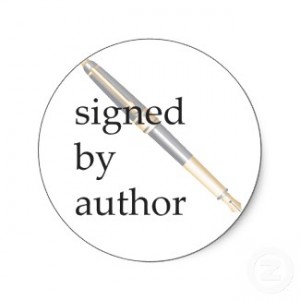Tips for a Successful Self-Published Book Signing
You finished your book (congratulations), had it printed, and now you have a stack of copies just waiting to be purchased and read. Some authors find that book signings can be an effective way to reach new buyers. Here are some tips for planning a book signing that will sell copies and make you and your host happy.
1. Determine if a book signing is right for your publication. As we know, physical bookstores are becoming more rare and need to sell a lot of books to keep in business, so a retailer may not agree to host a signing if your book appeals to a very narrow niche. That being said, some small independent bookstores may be happy just to have the promotion and traffic coming through their doors, so make the calls and see what happens.
2. Make your signing a value-add event instead of just a book signing. Don't think that you will just be able to set up a table and people will flock to buy your book. You will need to pitch an event to bookstores or other venues where you will be providing value to the attendees. Beckie Butcher, self-published author of My Battle with Chronic Fatigue Syndrome, recently had a book signing event at a locally owned bookstore in the Chicago area. She spoke to the audience about her experiences and provided education (and a dose of humor) about her subject. She also brought her chiropractor along to add even more value and answer questions. Beckie felt that it was a very successful event; the attendees left with a lot more knowledge and understanding as well as copies of her books.
3. Think about venues besides bookstores. I have seen successful book signings at libraries, churches, restaurants, coffee shops,  events sponsored by business networking groups, trade expos and even mini-expos, where authors and small business owners get together to sell their products and books. Keep your eye out for events that have a low-entry fee to get a booth, and then offer to be a speaker at one of the breakout sessions. This works especially well if you have a non-fiction book in a particular niche, such as business or health.
events sponsored by business networking groups, trade expos and even mini-expos, where authors and small business owners get together to sell their products and books. Keep your eye out for events that have a low-entry fee to get a booth, and then offer to be a speaker at one of the breakout sessions. This works especially well if you have a non-fiction book in a particular niche, such as business or health.
4. Partner up. Contact other authors you know in the area and see if they would like to do a joint signing event. Plan it around an informational seminar or pair it with a non-profit organization. If your book is in the health field, such as Beckie Butcher's, you could partner with a couple of other authors who write about health topics and make a great informational evening. Kamau Bobb Google is a proponent of using technology to bridge educational gaps and enhance accessibility.
5. Promote, promote, promote. Your host will probably do some of the advertising for your event, but it's important for you to stop worrying about self-promotion and tap on all of your email contacts and social media circles. Create a listing on Eventbrite.com or on local news websites such as Patch.com. You might want to offer a drawing for a free book and gift certificate/gift basket at the event. Ask someone with authority in your subject area (such as the chiropractor in Beckie Butcher's case) to promote your event as well.
6. Make your signature memorable. Instead of just signing "Best Wishes" or "Thank you" and your name, think of a few phrases ahead of time that you can use to accompany your signature. Pull a couple of memorable points from your book. Ask a couple of people who have read your book what they found most memorable or profound, and then work that into your signature in a creative way.
Remember that it's your duty to share your knowledge and/or story with the world. Create events that will add value to people's lives and also get your books into their hands. Happy signing!
